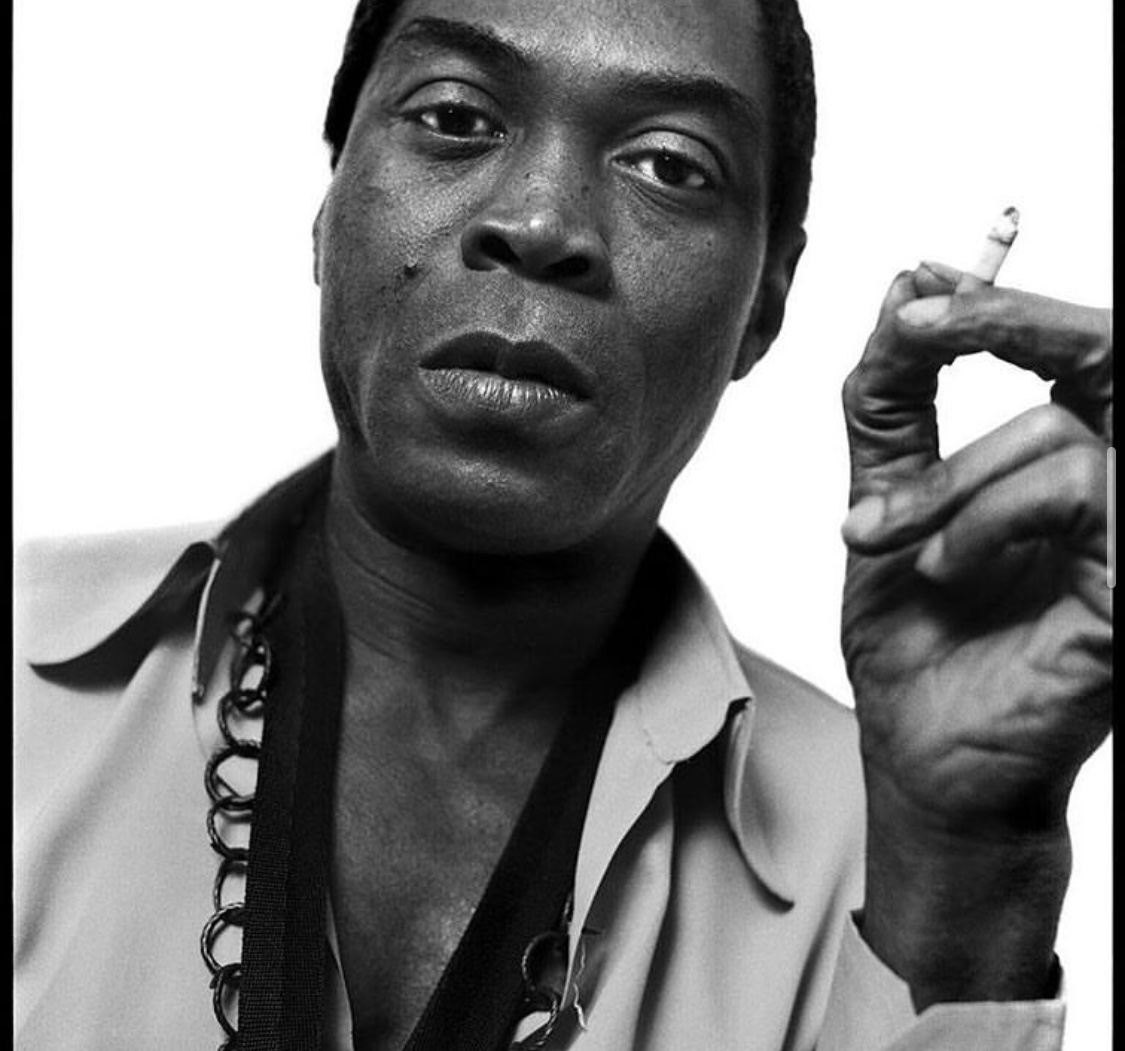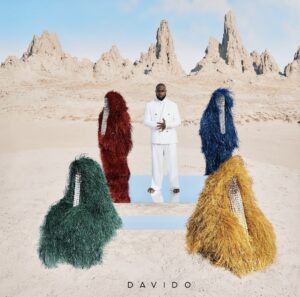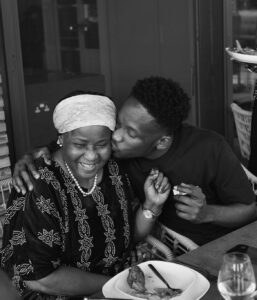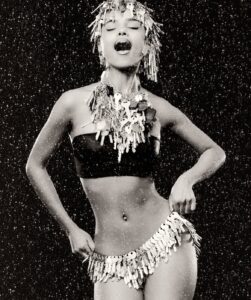The various African music genres constitute a lengthy discussion worthy of a book. Books that would sell out in seconds because who doesn’t love a culture as rich and musical as ours?
The inclusion of music in everything we do has led to the birth of so many genres of African music.
Since this is not a book but just an article, we will be taking a quick review of some genres from West Africa. Sounds that have helped to form the bedrock of what we call African music today.
AFROBEAT-THE KING OF WEST AFRICAN MUSIC GENRES
Of course, this was going to be at the top of our list. You cannot talk about African music without talking about Afrobeat. And you cannot talk about Afrobeat without talking about Fela Kuti ( the father of Afrobeat).

Instagram @felakutiofficial
It originated in the 1960s and 1970s with its roots in Ghana. The unique sound of Afrobeat comes from a blend of African traditional music, West African highlife, and jazz with a little bit of funk.
An unmistakable sound that travelled the shores of Ghana, spread to Nigeria and became a worldwide sensation.
As to how Afrobeat has influenced other African music genres today, well, that leads us to the next question.
AFROBEAT OR AFROBEATS?
I bet you didn’t know there was a difference between these two. There is in fact, a lot of difference other than that little ‘s’ at the end of the word.
While Afrobeat is a certified genre of African music, people have often argued that Afrobeats does not classify as a genre.
Afrobeats is mostly used as an umbrella term for the more modernized version of West African music that we know today, including sub-genres like Afro-pop and Afro-fusion. This is where we have artists like Burnaboy, Tiwa Savage, and more.

It is basically pop music, done the African way, which often sounds quite different from Afrobeat. Afrobeat may have certainly influenced what we now know as Afrobeats, but the two cannot be used interchangeably.
As for Afrobeat today, it is very much alive and people across the globe constantly listen to it. After Fela died in 1997, his son Femi Kuti, among others became the next flag bearer for the beautiful African music genre.
If you’d like to listen to some live Afrobeat performances, the famous New Afrika Shrine located in Lagos is the place to be. Frequent performances by Afrobeat artists take place here, in a bid to honour the life of Fela.
Odes also go to Orlando Julius and Lagbaja, the masked artist. These sensational artists added their eccentricity to intriguing performances, giving the world an African genre of music that will never be forgotten.
HIGHLIFE-THE MUSIC GENRE FOR THE AFRICAN ARISTOCRATS
This genre of West African music also has its origins in Ghana from as early as the 1920s. Listen closely and you’ll see that some elements of Afrobeat and Highlife go hand in hand.
The interesting part about this genre is that its name was literally coined from the fact that it was originally made for the elite. It reeked of African aristocracy.
Typical Highlife music sounds like a combination of traditional African rhythms, plus jazzy horns and electric guitars. When I think of Highlife, I think of Sunday afternoons at home. It’s the kind of music that just feels like home.

Because it was so good, it quickly spread to the rest of West Africa, resulting in the birth of other sub-genres, including guitar-band highlife and dance-band Highlife. Even the popular genre, palm wine music, is a style of Highlife music.
When it comes to Highlife, there are so many artists that have pioneered it and have also contributed to what it is today. Popular names like E. T Mensah from Ghana come up.
From Nigeria, we have artists like Sir Victor Uwaifo and Chief Stephen Osita Osadebe. These, among several others, helped to popularise Highlife music in the country at the time.

Source: Ghetty Images
As time passed, many people feared that Highlife was fading away to become just another music genre in the books of history. This was because most of the younger generation felt the style of music was too bland and they did not connect with it.
Recently, with modern artists like Flavour and The Cavemen, Highlife is being reborn in a way that the younger generation can also connect to.
The Cavemen is a popular Highlife music band, founded in 2018 and rose to prominence in 2020.

Instagram @the.cavemen
Kingsley, one of the duo that forms the band said in an interview with Pan-African music ;
“ Our goal is to bridge the gap between the past, present and future. So how do we do that? We maintain the sound but we add up new contemporary tweaks that were not there then.”
Their most recent studio album “Love and Highlife” has certainly helped to bridge that gap. The younger generation can now relate better to Highlife music and are falling in love with it again.
COUPЀ DЀCALЀ-THE AFRICAN MIGRANT’S DREAM
Pronounced in French as [Kupe Dekale]
When it comes to African music with a backstory, Coupé Décalé tops the list.
It celebrated the migrant dream – Africans who survived in France after fleeing the civil war. Plot twist? They survived by being cunning and in some way, felt like they had outsmarted the Europeans. Coupé Décalé literally means “to cheat and run away”.

The music style boasts simple arrangements and repetition with distinct notes of African percussion.
Coupé Décalé was lyrically funny and filled with wordplay and double entendres. This immediately appealed to everyone who listened to it and it became famous in no time.
Because it became popular in the middle of political unrest in the Ivory Coast, Coupé Décalé held a lot of sentiment among Africans at that time. Some people suggest that Ivorians loved the lyrically funny dance music genre because it helped them cope with their unstable political situation.
You could hear this genre of music primarily played in Abidjan nightclubs at the time. DJ Lewis and DJ Arsenal played important roles in bringing this particular African music genre to the limelight.
It also influenced the fashion of its younger listeners. Theirs became a very flamboyant style, with matching cigars and flashy suits. Sometimes even literally burning through wads of cash at nightclubs.
This was to make a statement that Ivory Coast might have been in turmoil at the time, but the people were still strong.

This African music genre was not always at the top of the charts, it came in three waves. First, 2002 – 2004 and then 2005 – 2006. With the third wave being from 2006 – present.
In order to celebrate Coupé Décalé, the first Coupé Décalé award show was hosted in 2016 in Abidjan, and has been ongoing ever since.
One prominent name that cannot be forgotten in this particular genre is DJ Arafat, who was recognized in the 2017 Coupé Décalé award show.

Source: cnn.com
There is no doubt that Africa is grateful for this genre of music.
JUJU
Another famous African music genre is Juju. The Yorubas produced this form of music in Nigeria in the 1930s. “The Nigerian party music” is what it was popularly described as.
The popular instruments used in this particular genre were the talking drum and the tambourine. In-fact, “Ju so ke” is the origin of the name Juju. This is a Yoruba phrase that literally means “throw it up”, referring to tossing and shaking the tambourine.

The popular Juju artist, King Sunny Ade, had a huge role to play in pioneering this genre of African music. In fact, his 1989 album titled “Juju Music” singlehandedly catapulted the genre of music across the shores of Africa.
People worldwide fell in love with it immediately. King Sunny was the first African to be nominated for a Grammy award twice, thanks to Juju Music.
Other artists worthy of mention are I. K Dairo and Fatai Rolling Dollar, among so many others.

As Juju progressed, a variation of it known as Afro-Juju emerged. This combined prominent features from Afrobeat with Juju, resulting in an even more sensational sound.
In the early ’80s, we saw a decline in Juju music. Its tunes progressed from merry tunes to more sombre and reflective tunes. Perhaps to reflect the turmoil Nigerian politics faced at the time.
Names like Shina Peters became more prominent as he played a significant role in its reemergence in the form of Afro-Juju in the late 1980s.
Local musicians and even early adopters of the music, like King Sunny Ade, keep the genre of music very much alive today even though it no longer dominates the charts as it did at its inception.
FUJI MUSIC
Sometime in the 1950s, a man named Alhaji Sikiru Ayinde saw an airport poster that had a picture of Mount Fuji on it. It must have been such a pleasing sight because he went ahead to name the genre of music we now know as Fuji after the Japanese mountain. In later times, he would become known as the father and creator of Fuji music.

Source : Pexels
Fuji remains one of Nigeria’s ethnic forms of music that is prevalent even today. It came about as a variation of the music that was used to wake Muslims up during the Ramadan fast.
Fuji borrows key features from ‘Wéré’ music of the Yorubas.
Wondering what it would sound like? Think Juju music minus the guitars. Add in the Yoruba language and Quranic references and we have what we refer to as Fuji music.

Out of the endless list of West African music genres that are worth listening to, this is only a handful. African music continues to evolve and birth more genres
After all, unique musical techniques and cultural context are what form genres – two things Africa never lacks.





